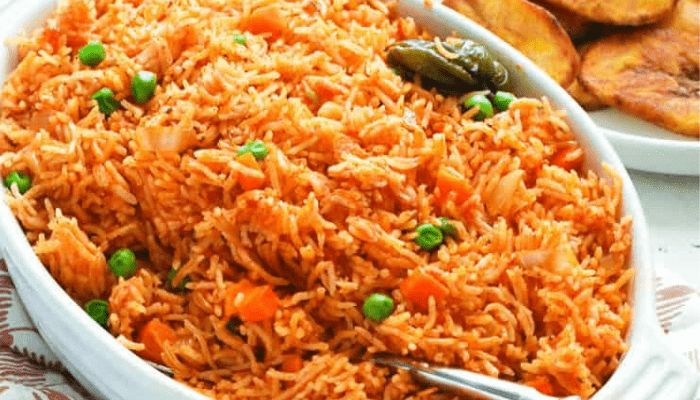Nigeria recorded its first decline in the National Average Jollof Index after rising steadily since February 2018, as both headline and food inflation in Africa’s most populous nation continue to cool.
“In Nigeria, the National Average Jollof Index witnessed a modest decline of 3.17% over the quarter, falling from N27,528 in June to N26,656 by September,” SBM Intelligence said in a new report on Tuesday.
The Lagos-based data analytics and intelligence gathering firm, however, noted that the moderation in the price index was “non-linear and fragile”, urging authorities to “establish basic supply chain integrity and security.
“The easing momentum is partially credited to government interventions, notably, import waivers for key food items, which improved market supply, and a more stable Naira, which helped curb the cost of imported inputs.”
The fall in the Jollof Index follows the sixth straight drop in headline inflation, which slowed to 18.02%in September 2025, compared to 20.12% in the prior month.
Read also: Cost of making jollof rice surges 7-fold in nine years
Food prices are also cooling, dropping to their lowest levels this year at 16.87% due to the base effect and the typical harvest season that has made prices fall.
But SBM Intelligence warned that “price relief remains largely theoretical for low-income consumers” as an estimated 30.6 million Nigerians were classified as being at risk of acute food insecurity as at the end of the third quarter of this year.
Nigeria is witnessing a rebound in macroeconomic stability with the naira firming up and inflation cooling, but citizens lament that gains are yet to trickle down even as prices continue to slow in Africa’s top crude producer.
Insecurity hamstrings food affordability
Despite efforts by the government to improve food security and enable gains of reforms to meet the most vulnerable, incessant insecurity across food-growing regions keeps stoking food prices and results in widespread hunger.
Conflict, particularly in Northcentral States like Benue, Niger, and Plateau, severely constrains farmers’ access to land, disrupts main season cultivation, and introduces an embedded price risk premium across the entire supply chain, SBM Intelligence said.
This impact was compounded by flood incidents in Kwara and Niger States, which destroyed farmland and household stocks, amplifying local scarcity.
“Insecurity remains the single largest impediment to achieving food affordability,” SBM Intelligence wrote in its report. “Field reports confirm that the largest cost obstacles are not official taxation, but informal and security-related logistics burdens.”

